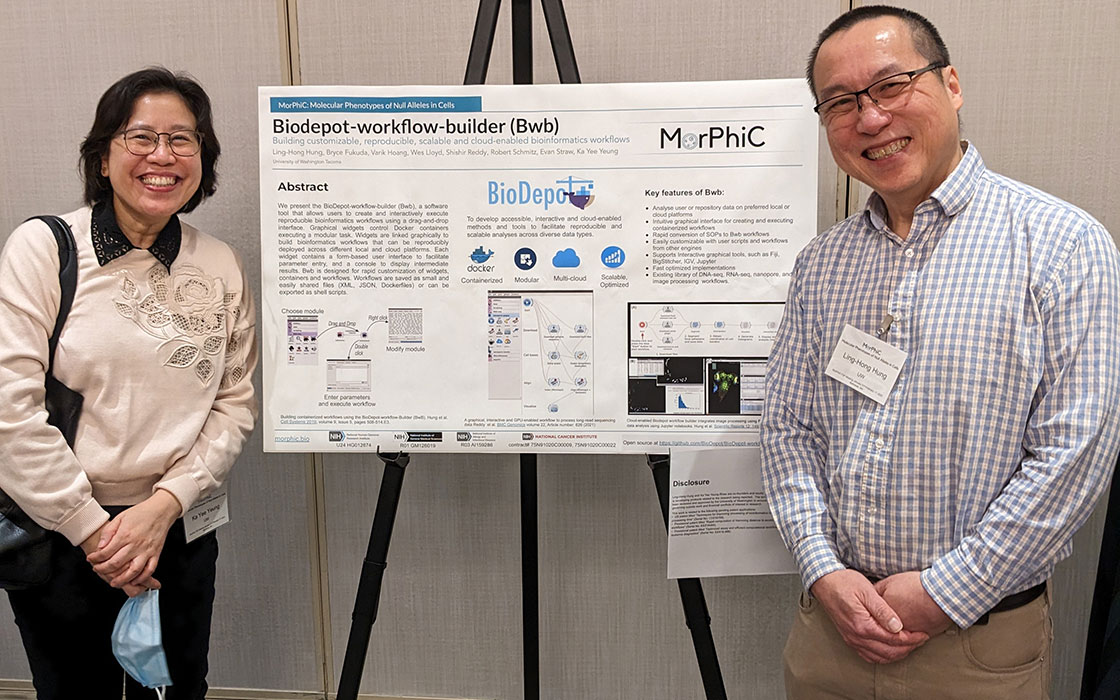
Bioinformatics Team Powers International Effort to Map Gene Function
Dr. Ka Yee Yeung’s research group is making a key contribution to a historic effort to understand the function of every human gene.
Dr. Ka Yee Yeung, a professor in the UW Tacoma School of Engineering & Technology (SET), will lead a team making a key contribution to a historic effort to understand the function of every human gene.
The National Human Genome Research Institute (NGHRI), an arm of the National Institutes of Health, is launching a multi-phase, multi-year, multi-institution project called MorPhiC (Molecular Phenotypes of Null Alleles in Cells). The goal is to systematically investigate the function of every human gene and generate a catalog of the molecular and cellular consequences of inactivating each gene.
As part of a $7 million grant over five years, Yeung’s team is helping to build the MorPhiC Data Resource and Administrative Coordinating Center (DRACC). The center will be based at the University of Miami Miller School of Medicine and will be led by Miami’s Dr. Stephan Schürer. Other institutional partners are the European Molecular Biology Laboratory’s European Bioinformatics Institutes and Queen Mary University of London. UW Tacoma’s and Yeung’s share of the grant will total about $2 million over the five years.
MorPhiC will produce massive amounts of data. The DRACC will develop the infrastructure to store, disseminate and analyze the information. In particular, Yeung’s team will use a platform they have developed called BioDepot-Workflow-Builder, a cloud-based, open-source graphical tool for constructing and reproducibly executing bioinformatics workflows. The UW Tacoma team will process data generated across four different data production centers and contribute to data dissemination in the MorPhiC program.
The Human Genome Project, completed in 2003, and its successor efforts, have identified 20-to-25,000 total human genes. More than 6,000 have not been well-studied. Of those that have, only a subset of their functions is well-characterized.
In its first phase, funded with a total of $42.5 million over five years, MorPhiC will look at a subset of 1,000 genes. The pilot will allow researchers to refine the methods they use to generate cell cultures, and to develop common data formats to record, store and transmit what they learn. If phase one is successful, researchers will expand to a larger set of genes in future phases.
Yeung is serving as one of four multiple principal investigators (MPI) of the MorPhiC Data Resource and Administrative Coordinating Center. Dr. Ling-Hong Hung, SET research assistant professor, serves as a co-investigator in this award. Also on their team are Jesse Flores, currently enrolled in SET’s graduate certificate in software development and engineering; Bryce Fukuda, ’23 M.S. Computer Software & Systems (MSCSS); Bob Schmitz, ’20 BSCSS and ’23 MSCSS; Shishir Reddy, ’22 MSCSS and current Ph.D. student; and Xiaoyang Li and Karen Setiawan, current MSCSS students.



